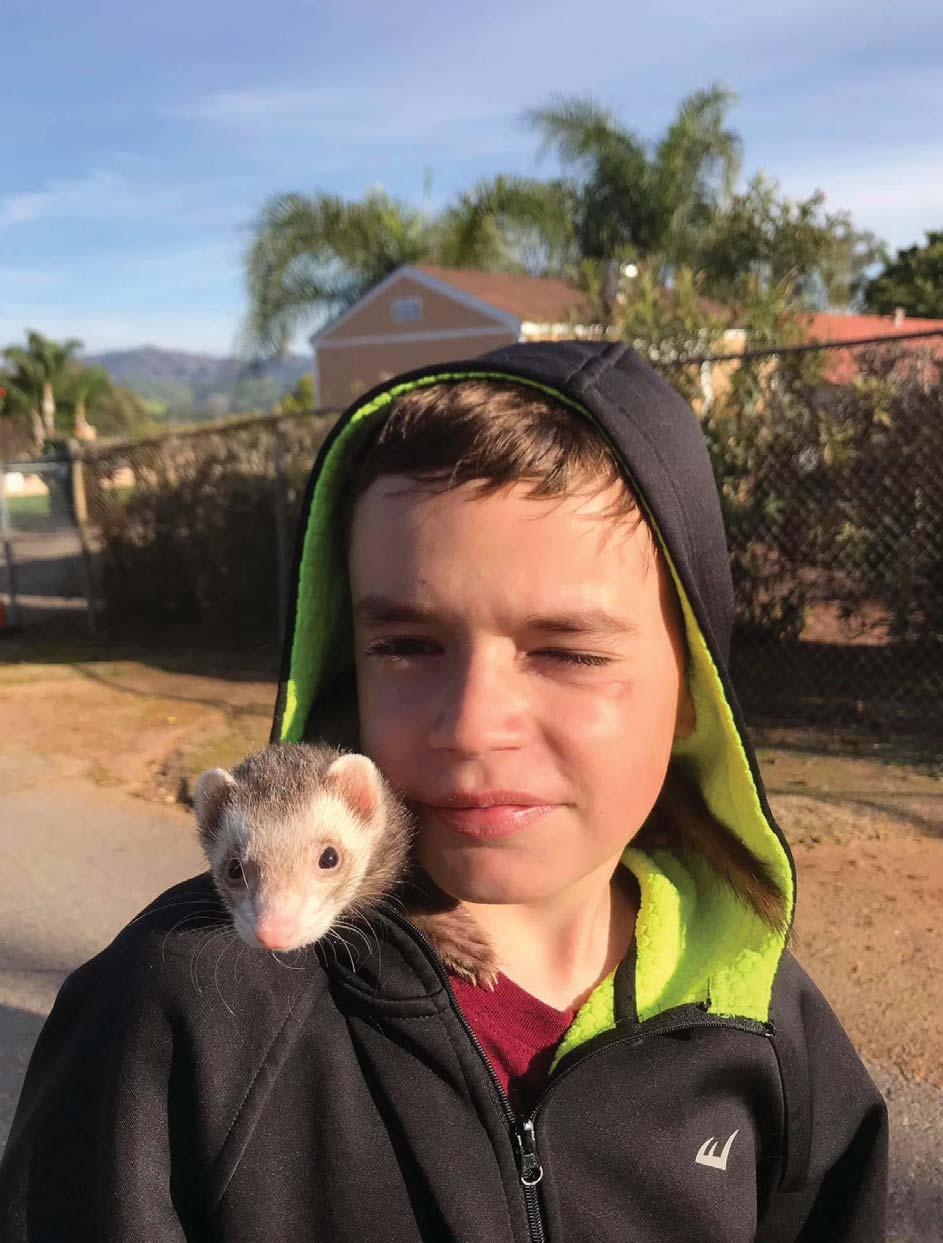WINTER 2020 | 9
So you want a ferret? By: Denice
W
hether you are adopting a ferret from a pet store, shelter or rescue, here are a few things you will need to consider for your new family pet. Baby ferrets are playful, mischievous and cuddly. They still have baby teeth and may nip a bit until they are finished teething, at about 14 weeks old. These unique pets are perfect for people who live in smaller spaces. While some owners have elaborate play areas and rooms for their ferrets, they don’t need much more than a cage to keep them safely napping while you are gone and daily supervised exercise. While they sleep about 18 hours a day, they will need exercise to expend their energy. (Sleep hard. Play hard.) Ferrets can be litter trained! (Stay tuned for tips and tricks in the next issue.) Ferrets love to steal treasure and stash it where you can’t find it. Socks, jewelry, sunglasses… you name it. If it is left at their level it becomes theirs. You will need to ferret-proof any area where your ferrets are allowed to roam free. Make sure that all door cracks are not large enough for a ferret to escape, that they cannot get hurt climbing into/on/around any of the furniture and that your barricades are secure. Owning a ferret is a decision that should NOT be taken lightly. The average life span is 8 years. Every ferret deserves a fur-ever home.
When you bring your Marshall ferret home, they will need:
• • Cage » Warm bedding they can burrow in Marshall Premium Diet
» Nail Clippers « Ferret Shampoo
» A hammock to hang in » High-back litter pan » Dust-free or newsprint pellet litter » Water and food dishes » Toys
« Cage
• Harness & lead • Bell collar • Ferret shampoo • Nail clippers • Ferrets for Dummies book
» Bell Collar
Marshall Premium Diet
DID YOU KNOW? Ferrets are social creatures. They live in family groups called a business. Many believe in ferret math — once you have one ferret you will quickly have many more.








